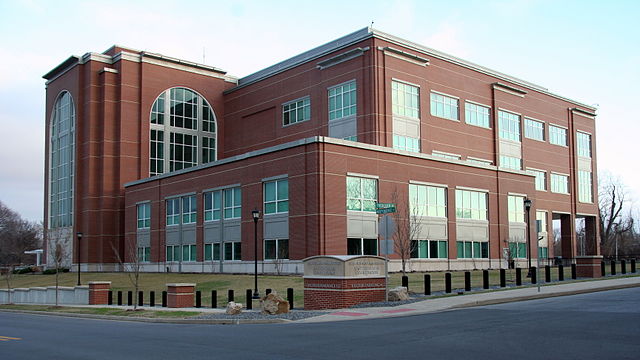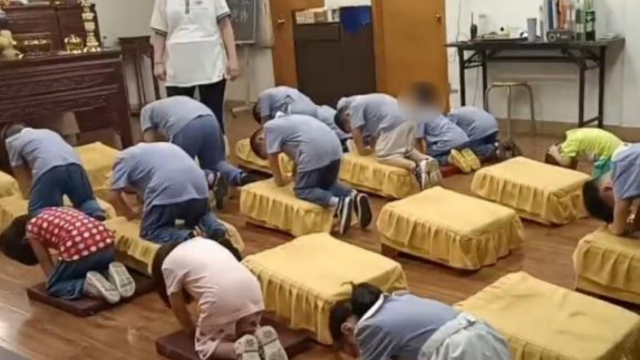
The lawsuit names as co-defendant the Chinese Communist Party, as Bitter Winter suggested, and adds the Wuhan Institute of Virology and the Chinese Academy of Sciences.
Massimo Introvigne
On April 21, 2020, the State of Missouri filed a lawsuit with the U.S. District Court for the Eastern District of Missouri, Southeastern Division against the People’s Republic of China (PRC), the CCP, the National Health Commission of the PRC, the Ministry of Emergency Management of the PRC, the Ministry of Civil Affairs of the PRC, the People’s Government of Hubei Province, the People’s Government of Wuhan City, the Wuhan Institute of Virology, and the Chinese Academy of Sciences.
The complaint notes that, “An appalling campaign of deceit, concealment, misfeasance, and inaction by Chinese authorities unleashed this pandemic. During the critical weeks of the initial outbreak, Chinese authorities deceived the public, suppressed crucial information, arrested whistleblowers, denied human-to-human transmission in the face of mounting evidence, destroyed critical medical research, permitted millions of people to be exposed to the virus, and even hoarded personal protective equipment—thus causing a global pandemic that was unnecessary and preventable.” Defendants should thus be held “responsible for the enormous death, suffering, and economic losses they inflicted on the world, including Missourians, and they should be held accountable.” The lawsuit asks the court to determine the damages, but states that Missourians “have suffered billions and possibly tens of billions of dollars in economic damages, as well as substantial non-economic damages.”
What is interesting in the Missouri lawsuit, which is the most serious attempt to-date to claim damages from China, is that it names as defendants not only a sovereign state, the PRC, and ministries and local branches of the PRC, but also the CCP, the Wuhan Institute of Virology, and the Chinese Academy of Sciences.
The PRC and its national and local branches are in principle covered by the immunity clause for sovereign states but, as Bitter Winter noted in its past coverage of this legal issue, in the U.S. the clause is not without exceptions.
The exception the Missouri complaint relies on is the commercial activity exception to the Foreign Sovereign Immunities Act (“FSIA”), 28 U.S.C. § 1605(a)(2), which provides that, “(a) A foreign state shall not be immune from the jurisdiction of courts of the United States or of the States in any case— … (2) in which the action is based upon a commercial activity carried on in the United States by the foreign state; or upon an act performed in the United States in connection with a commercial activity of the foreign state elsewhere; or upon an act outside the territory of the United States in connection with a commercial activity of the foreign state elsewhere and that act causes a direct effect in the United States.” The State of Missouri argues that the operation of healthcare system in China, since Chinese citizens pay for it, is a “commercial activity,” and that using paid agents to infiltrate social media with fake news and manipulating the international market of masks and other devices needed for the pandemic are also commercial activities.
The first comments on the Missouri lawsuit, including by Yale professor of law Lea Brilmayer, are that it would be difficult for the court to assert jurisdiction over China as a sovereign state. However, Missouri also sued the CCP and other nonstate entities, something Bitter Winter was the first to suggest as a strategy to circumvent the sovereign immunity China as a state may claim.
The Missouri complaint notes that, “the Communist Party is not an organ or political subdivision of the PRC, nor is it owned by the PRC or a political subdivision of the PRC, and thus it is not protected by sovereign immunity.” It also quotes a precedent, Yaodi Hu v. Communist Party of China [2012 WL 7160373, at *3 (W.D. Mich. Nov. 20, 2012)], holding that the CCP is not entitled to immunity under the Foreign Sovereign Immunities Act.
Missouri also seeks damages from the Wuhan Institute of Virology, and from the Chinese Academy of Sciences, which “administers the Wuhan Institute,” noting that, “since at least November 2019, the Wuhan Institute has conducted research on coronaviruses,” “cables from the United States Department of State have warned of safety concerns at the Wuhan Institute,” and “the United States is currently conducting a full-scale investigation into whether the novel coronavirus, which went on to morph into a global pandemic that has brought the global economy to its knees, escaped from the Wuhan Institute.”
The claims against the Wuhan Institute of Virology and the Chinese Academy of Sciences requires proofs that the virus in fact “escaped from the Wuhan Institute,” something that was once dismissed as a conspiracy theory but is now taken very seriously in the United States, as the lawsuit demonstrates. Note that this claim is not incompatible with scientific findings that the virus is of animal origin, rather than created in a laboratory, since an infected animal affected by a natural virus and being studied there may have escaped from the Wuhan laboratory.
Meanwhile, the U.S. Republican Senator from Missouri, Josh Hawley, introduced a federal bill that would strip China of its sovereign immunity and create a private right of action for American entities and citizens against the CCP. Earlier in April. Senator Hawley, together with Senator Tom Cotton (R-Arkansas), and Representatives John Curtis (R-Utah), Mike Gallagher (R-Wisconsin), Ted Yoho (R-Florida), Jim Banks (R-IN), and Liz Cheney (R-WY) introduced the Li Wenliang Global Public Health Accountability Act, which would authorize the president to sanction foreign officials who suppress or distort information about international public health crises, including the Wuhan coronavirus.
Source: Bitter Winter












